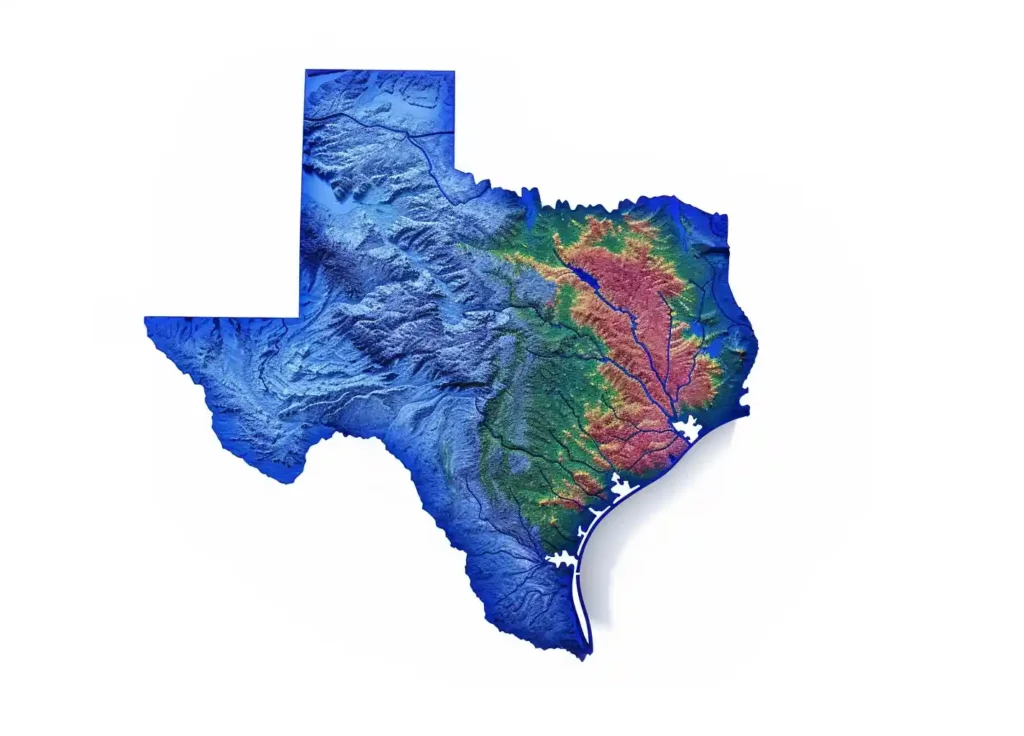Select City or County:
FRANKSTON (1.5%)
PALESTINE (1.5%)
ELKHART (1.25%)
ANDREWS (2%)
LUFKIN (1.5%)
DIBOLL (1.5%)
HUNTINGTON (1.5%)
ZAVALLA (1.5%)
HUDSON (1.5%)
BURKE (1%)
ROCKPORT (1%)
FULTON (1%)
HOLLIDAY (1%)
ARCHER CITY (1.5%)
SCOTLAND (1.5%)
MEGARGEL (1%)
WINDTHORST (1.5%)
LAKESIDE CITY (1%)
CLAUDE (1.5%)
LYTLE (1.5%)
POTEET (1.5%)
JOURDANTON (1.5%)
PLEASANTON (1.5%)
CHARLOTTE (1.5%)
SEALY (1.5%)
BELLVILLE (1.5%)
SAN FELIPE (1.5%)
WALLIS (1.5%)
INDUSTRY (1.5%)
BRAZOS COUNTRY (1%)
SOUTH FRYDEK (1%)
MULESHOE (1.5%)
BANDERA (1.5%)
ELGIN (1.5%)
BASTROP (1.5%)
SMITHVILLE (1.5%)
SEYMOUR (1%)
BEEVILLE (1.5%)
TEMPLE (1.5%)
KILLEEN (1.5%)
HOLLAND (1%)
BELTON (1.5%)
ROGERS (1.25%)
HARKER HEIGHTS (1.5%)
TROY (1.5%)
MORGANS POINT RESORT (1.5%)
NOLANVILLE (1.5%)
LITTLE RIVER ACADEMY (1%)
SALADO (1%)
SAN ANTONIO (1.25%)
ALAMO HEIGHTS (1.5%)
BALCONES HEIGHTS (1%)
CASTLE HILLS (1.25%)
LEON VALLEY (1.375%)
OLMOS PARK (1.5%)
TERRELL HILLS (1.25%)
HILL COUNTRY VILLAGE (2%)
WINDCREST (1.75%)
KIRBY (1.25%)
GREY FOREST (1.25%)
UNIVERSAL CITY (2%)
HOLLYWOOD PARK (2%)
CONVERSE (1.5%)
LIVE OAK (2%)
SOMERSET (2%)
SELMA (1.5%)
CHINA GROVE (1.25%)
ELMENDORF (1.5%)
SHAVANO PARK (1.25%)
SAINT HEDWIG (1.5%)
HELOTES (2%)
VON ORMY (2%)
FAIR OAKS RANCH (1.5%)
SANDY OAKS (1.5%)
JOHNSON CITY (1.5%)
BLANCO (1.5%)
ROUND MOUNTAIN (1%)
CLIFTON (1.5%)
MERIDIAN (1.5%)
VALLEY MILLS (1%)
WALNUT SPRINGS (1%)
IREDELL (1%)
MORGAN (1%)
CRANFILLS GAP (1.5%)
TEXARKANA (1.5%)
DE KALB (1.5%)
MAUD (1.5%)
NEW BOSTON (1.5%)
HOOKS (1.5%)
NASH (1.5%)
WAKE VILLAGE (1.5%)
REDWATER (1.5%)
LEARY (1%)
ALVIN (1.5%)
PEARLAND (1.5%)
LIVERPOOL (1%)
ANGLETON (1.5%)
FREEPORT (1.5%)
WEST COLUMBIA (1.5%)
DANBURY (1.5%)
BROOKSIDE VILLAGE (1%)
LAKE JACKSON (1.5%)
CLUTE (1.5%)
SWEENY (1.375%)
BRAZORIA (1.5%)
RICHWOOD (1.25%)
OYSTER CREEK (1.5%)
SURFSIDE BEACH (1.5%)
JONES CREEK (1%)
MANVEL (1.5%)
QUINTANA (1%)
HILLCREST VILLAGE (1.5%)
IOWA COLONY (1.5%)
HOLIDAY LAKES (2%)
BASTROP (2%)
WEBBERVILLE (2%)
MANOR (1.5%)
AUSTIN (1.5%)
MUSTANG RIDGE (1%)
PFLUGERVILLE (2%)
BEE CAVE (1.5%)
SUNSET VALLEY (2%)
LAGO VISTA (1.5%)
JONESTOWN (1.5%)
WEST LAKE HILLS (1.5%)
POINT VENTURE (2%)
LAKEWAY (1.5%)
GARFIELD (2%)
ROLLINGWOOD (1.5%)
SAN LEANNA (1%)
MANCHACA (1%)
VILLA GEORGETOWN (1%)
BAILEY (1.5%)
BLACKWELL (1.5%)
COLLEGE STATION (1.5%)
MILLICAN (1%)
KURTEN (1.5%)
WELLBORN (1.5%)
WIXON VALLEY (1.5%)
FRANKLIN (1.5%)
EARLY (1.5%)
BANGS (1.5%)
BLANKET (1.5%)
MAY (1.5%)
BROWNSVILLE (1%)
HARLINGEN (1.5%)
SAN BENITO (1.5%)
PORT ISABEL (1.5%)
LOS FRESNOS (1.5%)
RIO HONDO (1.5%)
BAYVIEW (1.5%)
LAGUNA VISTA (1.5%)
SOUTH PADRE ISLAND (1.5%)
RANCHO VIEJO (1.5%)
INDIAN LAKE (1.5%)
PRIMERA (1.5%)
COMBES (1.5%)
PALM VALLEY (1.5%)
SAN FRANCISCO (1.5%)
STOCKTON BEND (1.5%)
GORDON (1.5%)
MILLSAP (1%)
MINERAL WELLS (1.5%)
CRESSON (1.5%)
PERFECT (1.5%)
SANTO (1.5%)
PALO PINTO (1.5%)
STRANDBURG (1.5%)
CEDAR HILL (1%)
RED OAK (1.5%)
BARDWELL (1.5%)
ITALY (1.5%)
MILFORD (1.5%)
PALMER (1.5%)
WAXAHACHIE (1.5%)
ENNIS (1.5%)
MIDLOTHIAN (1.5%)
FERRIS (1.5%)
OVILLA (1.5%)
GLENN HEIGHTS (1.5%)
ALMA (1.5%)
VENUS (1.5%)
ELMENDORF (1.5%)
SHAVANO PARK (1.5%)
SAINT HEDWIG (1.5%)
JOURDANTON (1.5%)
PLEASANTON (1.5%)
CHARLOTTE (1.5%)
ROBSTOWN (1.5%)
DRISCOLL (1.5%)
PETRONILA (1.5%)
PORT ARANSAS (1.5%)
HOLLIDAY (1.5%)
ARCHER CITY (1.5%)
SCOTLAND (1.5%)
MEGARGEL (1.5%)
WINDTHORST (1.5%)
LAKESIDE CITY (1.5%)
BEEVILLE (1.5%)
TEMPLE (1.5%)
KILLEEN (1.5%)
HARKER HEIGHTS (1.5%)
TROY (1.5%)
MORGANS POINT RESORT (1.5%)
NOLANVILLE (1.5%)
LITTLE RIVER ACADEMY (1.5%)
SALADO (1.5%)
BOWIE (1.5%)
NEWARK (1.5%)
RHOME (1.5%)
HASLET (1.5%)
KENNEDALE (1.5%)
RENDON (1.5%)
WATAUGA (1.5%)
NORTH RICHLAND HILLS (1.5%)
GRAND PRAIRIE (1.5%)
BENBROOK (1.5%)
LAKE WORTH (1.5%)
WESLACO (1.5%)
PHARR (1.5%)
MISSION (1.5%)
MERCEDES (1.5%)
EDCOUCH (1.5%)
DONNA (1.5%)
LA VILLA (1.5%)
PRIMERA (1.5%)
LOS INDIOS (1.5%)
ELSA (1.5%)
ALTON (1.5%)
PALMHURST (1.5%)
MCALLEN (1.5%)
EDINBURG (1.5%)
ALAMO (1.5%)
SAN JUAN (1.5%)
PORT ARTHUR (1.5%)
BEAUMONT (1.5%)
VIDOR (1.5%)
ORANGE (1.5%)
WEST ORANGE (1.5%)
PINEHURST (1.5%)
BRIDGE CITY (1.5%)
ROSE CITY (1.5%)
NEDERLAND (1.5%)
PORT NECHES (1.5%)
GROVES (1.5%)
KIRBYVILLE (1.5%)
JASPER (1.5%)
DALLAS (1.5%)
CROWLEY (1.5%)
DALWORTHINGTON GARDENS (1.5%)
EULESS (1.5%)
GRAND PRAIRIE (1.5%)
HALTOM CITY (1.5%)
HURST (1.5%)
KENNEDALE (1.5%)
KELLER (1.5%)
MANSFIELD (1.5%)
PELICAN BAY (1.5%)
PANTEGO (1.5%)
RIVER OAKS (1.5%)
WATAUGA (1.5%)
WHITE SETTLEMENT (1.5%)
ARLINGTON (1.5%)
WILMER (1.5%)
IRVING (1.5%)
GARLAND (1.5%)
FARMERS BRANCH (1.5%)
ADDISON (1.5%)
CARROLLTON (1.5%)
COPPELL (1.5%)
BALCH SPRINGS (1.5%)
ROWLETT (1.5%)
UNIVERSITY PARK (1.5%)
HIGHLAND PARK (1.5%)
HIGHLAND VILLAGE (1.5%)
LAKE DALLAS (1.5%)
LEWISVILLE (1.5%)
FLOWER MOUND (1.5%)
THE COLONY (1.5%)
CORINTH (1.5%)
HICKORY CREEK (1.5%)
NORTHLAKE (1.5%)
BARTONVILLE (1.5%)
ARGYLE (1.5%)
JUSTIN (1.5%)
KRUGERVILLE (1.5%)
AUBREY (1.5%)
CROSS ROADS (1.5%)
SHADY SHORES (1.5%)
LAKEWOOD VILLAGE (1.5%)
PILOT POINT (1.5%)
HACKBERRY (1.5%)
HICKORY CREEK (1.5%)
COPPER CANYON (1.5%)
SANGER (1.5%)
TIJERAS (1.5%)
MCALLEN (1.5%)
EDINBURG (1.5%)
ALAMO (1.5%)
SAN JUAN (1.5%)
LOS INDIOS (1.5%)
ELSA (1.5%)
ALTON (1.5%)
PALMHURST (1.5%)
MERCEDES (1.5%)
HIDALGO (1.5%)
PHARR (1.5%)
WESLACO (1.5%)
LA VILLA (1.5%)
MISSION (1.5%)
BROWNSVILLE (1.5%)
HARLINGEN (1.5%)
SAN BENITO (1.5%)
PORT ISABEL (1.5%)
LOS FRESNOS (1.5%)
RIO HONDO (1.5%)
BAYVIEW (1.5%)
LAGUNA VISTA (1.5%)
SOUTH PADRE ISLAND (1.5%)
RANCHO VIEJO (1.5%)
INDIAN LAKE (1.5%)
PRIMERA (1.5%)
COMBES (1.5%)
PALM VALLEY (1.5%)
SOUTHMOST (1.5%)
MERCEDES (1.5%)
DONNA (1.5%)
EDCOUCH (1.5%)
HIDALGO (1.5%)
MONTE ALTO (1.5%)
RANCHO VIEJO (1.5%)
ELSA (1.5%)
WESLACO (1.5%)
MCALLEN (1.5%)
EDINBURG (1.5%)
ALAMO (1.5%)
SAN JUAN (1.5%)
BAYVIEW (1.5%)
LAGUNA VISTA (1.5%)
SOUTH PADRE ISLAND (1.5%)
RANCHO VIEJO (1.5%)
INDIAN LAKE (1.5%)
PRIMERA (1.5%)
COMBES (1.5%)
PALM VALLEY (1.5%)
WATAUGA (1.5%)
NORTH RICHLAND HILLS (1.5%)
GRAND PRAIRIE (1.5%)
BENBROOK (1.5%)
LAKE WORTH (1.5%)
HORIZON CITY (1.5%)
SOCORRO (1.5%)
CLEVELAND (1.5%)
DAYTON (1.5%)
LIBERTY (1.5%)
AMES (1.5%)
NORTH CLEVELAND (1.5%)
KENEFICK (1.5%)
ROMAN FOREST (1.5%)
SHEPHERD (1.5%)
WILLIS (1.5%)
CONROE (1.5%)
NEW CANEY (1.5%)
PORTER HEIGHTS (1.5%)
SPRING (1.5%)
HUMBLE (1.5%)
PASADENA (1.5%)
DEER PARK (1.5%)
SHOREACRES (1.5%)
HOUSTON (1.5%)
LA PORTE (1.5%)
SEABROOK (1.5%)
TAYLOR LAKE VILLAGE (1.5%)
EL LAGO (1.5%)
WEBSTER (1.5%)
FRIENDSWOOD (1.5%)
LEAGUE CITY (1.5%)
CLEAR LAKE SHORES (1.5%)
SANTA FE (1.5%)
TEXAS CITY (1.5%)
DICKINSON (1.5%)
KEMAH (1.5%)
BACLIFF (1.5%)
SAN LEON (1.5%)
HITCHCOCK (1.5%)
GALVESTON (1.5%)
TEXAS CITY (1.5%)
KILGORE (1.5%)
LONGVIEW (1.5%)
HALLSVILLE (1.5%)
HARLETON (1.5%)
GILMER (1.5%)
DALLAS (1.5%)
GRAND PRAIRIE (1.5%)
IRVING (1.5%)
COPPELL (1.5%)
GARLAND (1.5%)
RICHARDSON (1.5%)
MESQUITE (1.5%)
BALCH SPRINGS (1.5%)
ROWLETT (1.5%)
SEAGOVILLE (1.5%)
LANCASTER (1.5%)
DESOTO (1.5%)
GLENN HEIGHTS (1.5%)
CEDAR HILL (1.5%)
DUNCANVILLE (1.5%)
WAXAHACHIE (1.5%)
ENNIS (1.5%)
FERRIS (1.5%)
RED OAK (1.5%)
OVILLA (1.5%)
MIDLOTHIAN (1.5%)
PALMER (1.5%)
ITALY (1.5%)
BARDWELL (1.5%)
MILFORD (1.5%)
VENUS (1.5%)
ALMA (1.5%)
JOURDANTON (1.5%)
PLEASANTON (1.5%)
CHARLOTTE (1.5%)
ALVIN (1.5%)
BRAZORIA (1.5%)
DANBURY (1.5%)
FREEPORT (1.5%)
LAKE JACKSON (1.5%)
CLUTE (1.5%)
OYSTER CREEK (1.5%)
SURFSIDE BEACH (1.5%)
JONES CREEK (1.5%)
HILLCREST VILLAGE (1.5%)
IOWA COLONY (1.5%)
MANVEL (1.5%)
QUINTANA (1.5%)
RICHWOOD (1.5%)
SWEENY (1.5%)
PEARLAND (1.5%)
BROOKSIDE VILLAGE (1.5%)
BASTROP (1.5%)
ELGIN (1.5%)
SMITHVILLE (1.5%)
WEBBERVILLE (1.5%)
ROUND ROCK (1.5%)
GEORGETOWN (1.5%)
JARRELL (1.5%)
LEANDER (1.5%)
CEDAR PARK (1.5%)
HUTTO (1.5%)
TAYLOR (1.5%)
GRANGER (1.5%)
WEIR (1.5%)
JONAH (1.5%)
SANDOVAL (1.5%)
LIBERTY HILL (1.5%)
FLORENCE (1.5%)
COUPLAND (1.5%)
BARTLETT (1.5%)
THRALL (1.5%)
BECKVILLE (1.5%)
CARTHAGE (1.5%)
GARY (1.5%)
TATUM (1.5%)
CLARKSVILLE (1.5%)
DETROIT (1.5%)
BLOSSOM (1.5%)
HONEY GROVE (1.5%)
BONHAM (1.5%)
EULESS (1.5%)
GRAND PRAIRIE (1.5%)
HALTOM CITY (1.5%)
HURST (1.5%)
KENNEDALE (1.5%)
KELLER (1.5%)
MANSFIELD (1.5%)
PELICAN BAY (1.5%)
PANTEGO (1.5%)
RIVER OAKS (1.5%)
WATAUGA (1.5%)
WHITE SETTLEMENT (1.5%)
ARLINGTON (1.5%)
SAN ANGELO (1.5%)
GRAPE CREEK (1.5%)
WALL (1.5%)
CARLSBAD (1.5%)
VERIBEST (1.5%)
MERTZON (1.5%)
CHRISTOVAL (1.5%)
WATER VALLEY (1.5%)
MILES (1.5%)
ROBERT LEE (1.5%)
BRONTE (1.5%)
WINTERS (1.5%)
BALLINGER (1.5%)
TALPA (1.5%)
ELDORADO (1.5%)
SONORA (1.5%)
ROOSEVELT (1.5%)
JUNCTION (1.5%)
MASON (1.5%)
MENARD (1.5%)
EDEN (1.5%)
MERTZON (1.5%)
FT. MCKAVETT (1.5%)
PAINT ROCK (1.5%)
RISING STAR (1.5%)
RANGER (1.5%)
EASTLAND (1.5%)
CARBON (1.5%)
DESDEMONA (1.5%)
GORMAN (1.5%)
OLDEN (1.5%)
PIONEER (1.5%)
ROMNEY (1.5%)
SHEP (1.5%)
WOODSON (1.5%)
BRECKENRIDGE (1.5%)
ROTAN (1.5%)
ROBY (1.5%)
SYLVESTER (1.5%)
MCCAULEY (1.5%)
HOBBS (1.5%)
HAMLIN (1.5%)
ROBY (1.5%)
MERKEL (1.5%)
TRENT (1.5%)
NOLAN (1.5%)
ROSCOE (1.5%)
BLACKWELL (1.5%)
SWEETWATER (1.5%)
HERMLEIGH (1.5%)
IRA (1.5%)
SNYDER (1.5%)
HERMLEIGH (1.5%)
LAMESA (1.5%)
LORENZO (1.5%)
ROPESVILLE (1.5%)
SLATON (1.5%)
SMYER (1.5%)
SHALLOWATER (1.5%)
NEW DEAL (1.5%)
ABERNATHY (1.5%)
WOLFFORTH (1.5%)
MIDLAND (1.5%)
ODESSA (1.5%)
GARDENDALE (1.5%)
PENWELL (1.5%)
GOLDSMITH (1.5%)
WEST ODESSA (1.5%)
IMPERIAL (1.5%)
PECOS (1.5%)
BALMORHEA (1.5%)
SARAGOSA (1.5%)
VAN HORN (1.5%)
PRESIDIO (1.5%)
RED BLUFF (1.5%)
FORT DAVIS (1.5%)
VALENTINE (1.5%)
MARFA (1.5%)
ALPINE (1.5%)
DEL RIO (1.5%)
EAGLE PASS (1.5%)
CARRIZO SPRINGS (1.5%)
BRACKETVILLE (1.5%)
CAMP WOOD (1.5%)
ROCKSPRINGS (1.5%)
UVALDE (1.5%)
SABINAL (1.5%)
LA PRYOR (1.5%)
LEAKEY (1.5%)
BLANCO (1.5%)
JOHNSON CITY (1.5%)
LYTLE (1.5%)
POTEET (1.5%)
JOURDANTON (1.5%)
PLEASANTON (1.5%)
CHARLOTTE (1.5%)
SOMERSET (1.5%)
SELMA (1.5%)
SHAVANO PARK (1.5%)
SAINT HEDWIG (1.5%)
UNIVERSAL CITY (1.5%)
SAN ANTONIO (1.5%)
ALAMO HEIGHTS (1.5%)
BALCONES HEIGHTS (1.5%)
CASTLE HILLS (1.5%)
LEON VALLEY (1.5%)
OLMOS PARK (1.5%)
TERRELL HILLS (1.5%)
HILL COUNTRY VILLAGE (1.5%)
WINDCREST (1.5%)
KIRBY (1.5%)
GREY FOREST (1.5%)
HOLLYWOOD PARK (1.5%)
LIVE OAK (1.5%)
ELMENDORF (1.5%)
CASTROVILLE (1.5%)
HICO (1.5%)
CLIFTON (1.5%)
MORGAN (1.5%)
IREDELL (1.5%)
WALNUT SPRINGS (1.5%)
MERIDIAN (1.5%)
VALLEY MILLS (1.5%)
CRANFILLS GAP (1.5%)
KILLEEN (1.5%)
BELTON (1.5%)
TROY (1.5%)
NOLANVILLE (1.5%)
LITTLE RIVER ACADEMY (1.5%)
SALADO (1.5%)
BOWIE (1.5%)
NEWARK (1.5%)
RHOME (1.5%)
HASLET (1.5%)
KENNEDALE (1.5%)
RENDON (1.5%)
WATAUGA (1.5%)
NORTH RICHLAND HILLS (1.5%)
GRAND PRAIRIE (1.5%)
BENBROOK (1.5%)
LAKE WORTH (1.5%)
HORIZON CITY (1.5%)
SOCORRO (1.5%)
CLEVELAND (1.5%)
DAYTON (1.5%)
LIBERTY (1.5%)
AMES (1.5%)
NORTH CLEVELAND (1.5%)
KENEFICK (1.5%)
ROMAN FOREST (1.5%)
SHEPHERD (1.5%)
WILLIS (1.5%)
CONROE (1.5%)
NEW CANEY (1.5%)
PORTER HEIGHTS (1.5%)
SPRING (1.5%)
HUMBLE (1.5%)
PASADENA (1.5%)
DEER PARK (1.5%)
SHOREACRES (1.5%)
HOUSTON (1.5%)
LA PORTE (1.5%)
SEABROOK (1.5%)
TAYLOR LAKE VILLAGE (1.5%)
EL LAGO (1.5%)
WEBSTER (1.5%)
FRIENDSWOOD (1.5%)
LEAGUE CITY (1.5%)
CLEAR LAKE SHORES (1.5%)
SANTA FE (1.5%)
TEXAS CITY (1.5%)
DICKINSON (1.5%)
KEMAH (1.5%)
BACLIFF (1.5%)
SAN LEON (1.5%)
HITCHCOCK (1.5%)
GALVESTON (1.5%)
TEXAS CITY (1.5%)
KILGORE (1.5%)
LONGVIEW (1.5%)
HALLSVILLE (1.5%)
HARLETON (1.5%)
GILMER (1.5%)
FLORESVILLE (1.5%)
STOCKDALE (1.5%)
LA VERNIA (1.5%)
POTH (1.5%)
FALLS CITY (1.5%)
LAMESA (1.5%)
LORENZO (1.5%)
ROPESVILLE (1.5%)
SLATON (1.5%)
SMYER (1.5%)
SHALLOWATER (1.5%)
NEW DEAL (1.5%)
ABERNATHY (1.5%)
WOLFFORTH (1.5%)
MIDLAND (1.5%)
ODESSA (1.5%)
GARDENDALE (1.5%)
PENWELL (1.5%)
GOLDSMITH (1.5%)
WEST ODESSA (1.5%)
IMPERIAL (1.5%)
PECOS (1.5%)
BALMORHEA (1.5%)
SARAGOSA (1.5%)
VAN HORN (1.5%)
PRESIDIO (1.5%)
RED BLUFF (1.5%)
FORT DAVIS (1.5%)
VALENTINE (1.5%)
MARFA (1.5%)
ALPINE (1.5%)
DEL RIO (1.5%)
EAGLE PASS (1.5%)
CARRIZO SPRINGS (1.5%)
BRACKETVILLE (1.5%)
CAMP WOOD (1.5%)
ROCKSPRINGS (1.5%)
UVALDE (1.5%)
SABINAL (1.5%)
LA PRYOR (1.5%)
LEAKEY (1.5%)
BLANCO (1.5%)
JOHNSON CITY (1.5%)
LYTLE (1.5%)
POTEET (1.5%)
JOURDANTON (1.5%)
PLEASANTON (1.5%)
CHARLOTTE (1.5%)
SOMERSET (1.5%)
SELMA (1.5%)
SHAVANO PARK (1.5%)
SAINT HEDWIG (1.5%)
UNIVERSAL CITY (1.5%)
SAN ANTONIO (1.5%)
ALAMO HEIGHTS (1.5%)
BALCONES HEIGHTS (1.5%)
CASTLE HILLS (1.5%)
LEON VALLEY (1.5%)
OLMOS PARK (1.5%)
TERRELL HILLS (1.5%)
HILL COUNTRY VILLAGE (1.5%)
WINDCREST (1.5%)
KIRBY (1.5%)
GREY FOREST (1.5%)
HOLLYWOOD PARK (1.5%)
LIVE OAK (1.5%)
ELMENDORF (1.5%)
CASTROVILLE (1.5%)
HICO (1.5%)
CLIFTON (1.5%)
MORGAN (1.5%)
IREDELL (1.5%)
WALNUT SPRINGS (1.5%)
MERIDIAN (1.5%)
VALLEY MILLS (1.5%)
CRANFILLS GAP (1.5%)
KILLEEN (1.5%)
BELTON (1.5%)
TROY (1.5%)
NOLANVILLE (1.5%)
LITTLE RIVER ACADEMY (1.5%)
SALADO (1.5%)
BOWIE (1.5%)
NEWARK (1.5%)
RHOME (1.5%)
HASLET (1.5%)
KENNEDALE (1.5%)
RENDON (1.5%)
WATAUGA (1.5%)
NORTH RICHLAND HILLS (1.5%)
GRAND PRAIRIE (1.5%)
BENBROOK (1.5%)
LAKE WORTH (1.5%)
HORIZON CITY (1.5%)
SOCORRO (1.5%)
CLEVELAND (1.5%)
DAYTON (1.5%)
LIBERTY (1.5%)
AMES (1.5%)
NORTH CLEVELAND (1.5%)
KENEFICK (1.5%)
ROMAN FOREST (1.5%)
SHEPHERD (1.5%)
WILLIS (1.5%)
CONROE (1.5%)
NEW CANEY (1.5%)
PORTER HEIGHTS (1.5%)
SPRING (1.5%)
HUMBLE (1.5%)
PASADENA (1.5%)
DEER PARK (1.5%)
SHOREACRES (1.5%)
HOUSTON (1.5%)
LA PORTE (1.5%)
SEABROOK (1.5%)
TAYLOR LAKE VILLAGE (1.5%)
EL LAGO (1.5%)
WEBSTER (1.5%)
FRIENDSWOOD (1.5%)
LEAGUE CITY (1.5%)
CLEAR LAKE SHORES (1.5%)
SANTA FE (1.5%)
TEXAS CITY (1.5%)
DICKINSON (1.5%)
KEMAH (1.5%)
BACLIFF (1.5%)
SAN LEON (1.5%)
HITCHCOCK (1.5%)
GALVESTON (1.5%)
TEXAS CITY (1.5%)
KILGORE (1.5%)
LONGVIEW (1.5%)
HALLSVILLE (1.5%)
HARLETON (1.5%)
GILMER (1.5%)
FLORESVILLE (1.5%)
STOCKDALE (1.5%)
LA VERNIA (1.5%)
POTH (1.5%)
FALLS CITY (1.5%)
BOWIE (1.5%)
NEWARK (1.5%)
RHOME (1.5%)
HASLET (1.5%)
KENNEDALE (1.5%)
RENDON (1.5%)
WATAUGA (1.5%)
NORTH RICHLAND HILLS (1.5%)
GRAND PRAIRIE (1.5%)
BENBROOK (1.5%)
LAKE WORTH (1.5%)
HORIZON CITY (1.5%)
SOCORRO (1.5%)
CLEVELAND (1.5%)
DAYTON (1.5%)
LIBERTY (1.5%)
AMES (1.5%)
NORTH CLEVELAND (1.5%)
KENEFICK (1.5%)
ROMAN FOREST (1.5%)
SHEPHERD (1.5%)
WILLIS (1.5%)
CONROE (1.5%)
NEW CANEY (1.5%)
PORTER HEIGHTS (1.5%)
SPRING (1.5%)
HUMBLE (1.5%)
PASADENA (1.5%)
DEER PARK (1.5%)
SHOREACRES (1.5%)
HOUSTON (1.5%)
LA PORTE (1.5%)
SEABROOK (1.5%)
TAYLOR LAKE VILLAGE (1.5%)
EL LAGO (1.5%)
WEBSTER (1.5%)
FRIENDSWOOD (1.5%)
LEAGUE CITY (1.5%)
CLEAR LAKE SHORES (1.5%)
SANTA FE (1.5%)
TEXAS CITY (1.5%)
DICKINSON (1.5%)
KEMAH (1.5%)
BACLIFF (1.5%)
SAN LEON (1.5%)
HITCHCOCK (1.5%)
GALVESTON (1.5%)
TEXAS CITY (1.5%)
KILGORE (1.5%)
LONGVIEW (1.5%)
HALLSVILLE (1.5%)
HARLETON (1.5%)
GILMER (1.5%)
FLORESVILLE (1.5%)
STOCKDALE (1.5%)
LA VERNIA (1.5%)
POTH (1.5%)
FALLS CITY (1.5%)
WAXAHACHIE (1.5%)
ENNIS (1.5%)
FERRIS (1.5%)
RED OAK (1.5%)
OVILLA (1.5%)
MIDLOTHIAN (1.5%)
PALMER (1.5%)
ITALY (1.5%)
BARDWELL (1.5%)
MILFORD (1.5%)
VENUS (1.5%)
ALMA (1.5%)
ALMA (1.5%)
KENEDY (1.5%)
RUNGE (1.5%)
FALLS CITY (1.5%)
CUERO (1.5%)
YOAKUM (1.5%)
NORDHEIM (1.5%)
WESTHOFF (1.5%)
YORKTOWN (1.5%)
WEIMAR (1.5%)
ALLEYTON (1.5%)
ALTAIR (1.5%)
BORDEN (1.5%)
CHESTER (1.5%)
COLLIER (1.5%)
COLUMBUS (1.5%)
EAGLE LAKE (1.5%)
ELLINGER (1.5%)
GARWOOD (1.5%)
GLIDDEN (1.5%)
GLOSTER (1.5%)
KATY (1.5%)
LOUISVILLE (1.5%)
MORRIS (1.5%)
NASHVILLE (1.5%)
NEW ULM (1.5%)
QUINLAN (1.5%)
RICHLAND (1.5%)
ROCK ISLAND (1.5%)
SHELBY (1.5%)
SHERIDAN (1.5%)
SPLENDORA (1.5%)
STORY (1.5%)
THICKET (1.5%)
TOCO (1.5%)
TOLEDO BEND (1.5%)
TOMBALL (1.5%)
WALLER (1.5%)
ALAMO (1.5%)
ALBA (1.5%)
ALBANY (1.5%)
ALEDO (1.5%)
ALTO (1.5%)
ALTO BONITO (1.5%)
ALTON (1.5%)
ANDERSON (1.5%)
ANGLETON (1.5%)
ANNA (1.5%)
ANSON (1.5%)
ANTON (1.5%)
APPLEBY (1.5%)
ARANSAS (1.5%)
ARCHER CITY (1.5%)
ARCOLA (1.5%)
ARGYLE (1.5%)
ARLINGTON (1.5%)
ASHERTON (1.5%)
ATLANTA (1.5%)
AUBREY (1.5%)
AUSTIN (1.5%)
AVINGER (1.5%)
AXTELL (1.5%)
AZLE (1.5%)
BACHELOR (1.5%)
BAILEY (1.5%)
BALLINGER (1.5%)
BANDERA (1.5%)
BANGS (1.5%)
BARDWELL (1.5%)
BARRY (1.5%)
BARTLETT (1.5%)
BARTONVILLE (1.5%)
BASTROP (1.5%)
BAY CITY (1.5%)
BAYTOWN (1.5%)
BEAUMONT (1.5%)
BECKVILLE (1.5%)
BEDFORD (1.5%)
BEE CAVE (1.5%)
BELTON (1.5%)
BELLVILLE (1.5%)
BENBROOK (1.5%)
BERGHEIM (1.5%)
BERKELEY (1.5%)
BERNARD (1.5%)
BERTRAM (1.5%)
BETHEL (1.5%)
BIG LAKE (1.5%)
BIG SANDY (1.5%)
BIG SPRING (1.5%)
BISHOP (1.5%)
BIVINS (1.5%)
BLACKWELL (1.5%)
BLANCO (1.5%)
BLANKET (1.5%)
BLEDSOE (1.5%)
BLEIBLERVILLE (1.5%)
BLOOMINGTON (1.5%)
BLOOMING GROVE (1.5%)
BLOSSOM (1.5%)
BLUE RIDGE (1.5%)
BLUFF DALE (1.5%)
BLUM (1.5%)
BOERNE (1.5%)
BOLING (1.5%)
BONHAM (1.5%)
BONITA (1.5%)
BOOKER (1.5%)
BORDEN (1.5%)
BORGER (1.5%)
BOSSIER CITY (1.5%)
BOWIE (1.5%)
BOYD (1.5%)
BOYERS (1.5%)
BRADY (1.5%)
BRAZORIA (1.5%)
BREMOND (1.5%)
BRENHAM (1.5%)
BRIDGE CITY (1.5%)
BRONTE (1.5%)
BROOKSHIRE (1.5%)
BROWNFIELD (1.5%)
BROWNSVILLE (1.5%)
BRUCEVILLE (1.5%)
BRYSON (1.5%)
BUDA (1.5%)
BUFFALO (1.5%)
BUFFALO GAP (1.5%)
BULVERDE (1.5%)
BUNA (1.5%)
BURKBURNETT (1.5%)
BURLESON (1.5%)
BURNET (1.5%)
BURTON (1.5%)
BUSHLAND (1.5%)
BYERS (1.5%)
BYNUM (1.5%)
CABEZA (1.5%)
CADDO (1.5%)
CADDO MILLS (1.5%)
CAGLE (1.5%)
CALDWELL (1.5%)
CALL (1.5%)
CALVERT (1.5%)
CAMERON (1.5%)
CAMPBELL (1.5%)
CAMP WOOD (1.5%)
CANEY (1.5%)
CANTON (1.5%)
CANUTILLO (1.5%)
CANYON (1.5%)
CARBON (1.5%)
CARLSBAD (1.5%)
CARLSBAD NORTH (1.5%)
CARLSBAD SOUTH (1.5%)
CARLTON (1.5%)
CARROLLTON (1.5%)
CARRIZO SPRINGS (1.5%)
CARYVILLE (1.5%)
CASA (1.5%)
CASTLE HILLS (1.5%)
CATOR (1.5%)
CAVANAUGH (1.5%)
CEDAR HILL (1.5%)
CEDAR PARK (1.5%)
CELESTE (1.5%)
CENTER (1.5%)
CENTERVILLE (1.5%)
CHANDLER (1.5%)
CHANNELVIEW (1.5%)
CHAPEL HILL (1.5%)
CHARCO (1.5%)
CHARLOTTE (1.5%)
CHARTER (1.5%)
CHELSEA (1.5%)
CHEROKEE (1.5%)
CHESTER (1.5%)
CHICO (1.5%)
CHILDRESS (1.5%)
CHILLICOTHE (1.5%)
CHINA (1.5%)
CHINA GROVE (1.5%)
CHIRENO (1.5%)
CHISOS BASIN (1.5%)
CHRISTINE (1.5%)
CHRISTOVAL (1.5%)
CHURCHILL (1.5%)
CIBOLO (1.5%)
CLAIREMONT (1.5%)
CLARKSVILLE (1.5%)
CLARKSVILLE CITY (1.5%)
CLAUDE (1.5%)
CLAYTON (1.5%)
CLIFTON (1.5%)
CLINT (1.5%)
CLOVER (1.5%)
CLOVERLEAF (1.5%)
CLUTE (1.5%)
COAHOMA (1.5%)
COAST (1.5%)
COBLE (1.5%)
COCHRAN (1.5%)
COCKRELL HILL (1.5%)
COFFEE CITY (1.5%)
COLDSPRING (1.5%)
COLEMAN (1.5%)
COLLEGE STATION (1.5%)
COLLINSVILLE (1.5%)
COLLYVILLE (1.5%)
COLMESNEIL (1.5%)
COLORADO CITY (1.5%)
COMANCHE (1.5%)
COMBES (1.5%)
COMFORT (1.5%)
COMMERCE (1.5%)
COMO (1.5%)
COMSTOCK (1.5%)
CONCAN (1.5%)
CONCORD (1.5%)
CONROE (1.5%)
CONVERSE (1.5%)
COOLIDGE (1.5%)
COOPER (1.5%)
COPPERAS COVE (1.5%)
CORINTH (1.5%)
CORPUS CHRISTI (1.5%)
CORSICANA (1.5%)
COTULLA (1.5%)
COVINGTON (1.5%)
COYANOSA (1.5%)
CRANFILLS GAP (1.5%)
CRANDALL (1.5%)
CRANE (1.5%)
CRANES MILL (1.5%)
CRAWFORD (1.5%)
CROCKETT (1.5%)
CROSBY (1.5%)
CROSBYTON (1.5%)
CROSS PLAINS (1.5%)
CROSSROADS (1.5%)
CROSS TIMBERS (1.5%)
CROWELL (1.5%)
CROWLEY (1.5%)
CRYSTAL CITY (1.5%)
CUERO (1.5%)
CUMBY (1.5%)
CUNEY (1.5%)
CUSHING (1.5%)
CUT AND SHOOT (1.5%)
DAINGERFIELD (1.5%)
DALE (1.5%)
DALLARDSVILLE (1.5%)
DALLAS (1.5%)
DALWORTHINGTON GARDENS (1.5%)
DAMON (1.5%)
DANCIGER (1.5%)
DANEVANG (1.5%)
DARLINGTON (1.5%)
DAS (1.5%)
DAVILLA (1.5%)
DAWSON (1.5%)
DAYTON (1.5%)
DE KALB (1.5%)
DE LEON (1.5%)
DECATUR (1.5%)
DECKERVILLE (1.5%)
DEER PARK (1.5%)
DEFIANCE (1.5%)
DEL RIO (1.5%)
DELL CITY (1.5%)
DENISON (1.5%)
DENTON (1.5%)
DENVER CITY (1.5%)
DEPORT (1.5%)
DERBY (1.5%)
DESDEMONA (1.5%)
DESOTO (1.5%)
DETROIT (1.5%)
DEWEYVILLE (1.5%)
DIBOLL (1.5%)
DICKENS (1.5%)
DICKINSON (1.5%)
DILLEY (1.5%)
DIMMITT (1.5%)
DINERO (1.5%)
DIRECT (1.5%)
DISNEY (1.5%)
DIVIDE (1.5%)
DIVINE (1.5%)
DIXON (1.5%)
DOBBIN (1.5%)
DOGWOOD (1.5%)
DOMINGUEZ (1.5%)
DONNA (1.5%)
DOOLEY (1.5%)
DOOLEY BEND (1.5%)
DORAN (1.5%)
DOUBLE HORN (1.5%)
DOUGLAS (1.5%)
DOUGLASS (1.5%)
DOVER (1.5%)
DRANE (1.5%)
DREW (1.5%)
DREWRY (1.5%)
DRIFTWOOD (1.5%)
DRISCOLL (1.5%)
DRIPPING SPRINGS (1.5%)
DRYDEN (1.5%)
DUCHESS (1.5%)
DUFUR (1.5%)
DUGGAN (1.5%)
DUKE (1.5%)
DUMAS (1.5%)
DUNCANVILLE (1.5%)
DUNLAP (1.5%)
DUNN (1.5%)
DUNSOP (1.5%)
DURANGO (1.5%)
DURANT (1.5%)
DUSTER (1.5%)
DUTCH (1.5%)
DYE MOUND (1.5%)
DYESS (1.5%)
EAGLE LAKE (1.5%)
EARL (1.5%)
EARLY (1.5%)
EAST MOUNTAIN (1.5%)
EAST TEXAS (1.5%)
EASTLAND (1.5%)
EASTON (1.5%)
EATON (1.5%)
EBONY (1.5%)
ECHO (1.5%)
ECKERT (1.5%)
EDCOUCH (1.5%)
EDEN (1.5%)
EDGECLIFF VILLAGE (1.5%)
EDGERTON (1.5%)
EDGEWOOD (1.5%)
EDINBURG (1.5%)
EDITH (1.5%)
EDMUNDS (1.5%)
EDNA (1.5%)
EDOM (1.5%)
EDROY (1.5%)
EIDSON ROAD (1.5%)
EITZEN (1.5%)
ELDORADO (1.5%)
ELECTRA (1.5%)
ELGIN (1.5%)
ELIDA (1.5%)
ELKHART (1.5%)
ELLENDALE (1.5%)
ELMENDORF (1.5%)
ELMONT (1.5%)
ELMWOOD (1.5%)
ELSA (1.5%)
EMERSON (1.5%)
EMILY (1.5%)
EMORY (1.5%)
ENCINO (1.5%)
ENNIS (1.5%)
ENOCH (1.5%)
EOLA (1.5%)
ERA (1.5%)
ERATH (1.5%)
ERICKSDALE (1.5%)
ERICKSEN (1.5%)
ERNESTO (1.5%)
ERNIE (1.5%)
ESKEW (1.5%)
ESPANOLA (1.5%)
ESTELLINE (1.5%)
ESTES (1.5%)
ESTRADA (1.5%)
ETHAN (1.5%)
EULOGY (1.5%)
EUREKA (1.5%)
EUSTACE (1.5%)
EVA (1.5%)
EVADEN (1.5%)
EVANS (1.5%)
EVANT (1.5%)
EVERETT (1.5%)
EVERS (1.5%)
EVO (1.5%)
FAIRBANKS (1.5%)
FAIRCHILD (1.5%)
FAIRFIELD (1.5%)
FAIRHOPE (1.5%)
FAIRLANE (1.5%)
FAIRVIEW (1.5%)
FALCON HEIGHTS (1.5%)
FALFURRIAS (1.5%)
FANNIN (1.5%)
FARMERS BRANCH (1.5%)
FARMERSVILLE (1.5%)
FARRIS (1.5%)
FATE (1.5%)
FAWN (1.5%)
FEAGAN (1.5%)
FEATHER (1.5%)
FELIX (1.5%)
FELPS (1.5%)
FENTRESS (1.5%)
FERN (1.5%)
FERRIS (1.5%)
FICKLIN (1.5%)
FIFE (1.5%)
FINK (1.5%)
FISCHER (1.5%)
FISHER (1.5%)
FLAT (1.5%)
FLORESVILLE (1.5%)
FLOYD (1.5%)
FLOYDADA (1.5%)
FLUVANNA (1.5%)
FOLLETT (1.5%)
FOLSOM (1.5%)
FOREST (1.5%)
FORESTBURG (1.5%)
FOREST PARK (1.5%)
FORNEY (1.5%)
FORSAN (1.5%)
FORT BLISS (1.5%)
FORT DAVIS (1.5%)
FORT GRAHAM (1.5%)
FORT HOOD (1.5%)
FORT STOCKTON (1.5%)
FORT WORTH (1.5%)
FRANKLIN (1.5%)
FRANKSTON (1.5%)
FRED (1.5%)
FREDERICKSBURG (1.5%)
FREER (1.5%)
FRIENDSWOOD (1.5%)
FRIONA (1.5%)
FRISCO (1.5%)
FRITCH (1.5%)
FROST (1.5%)
FROSTVILLE (1.5%)
FRUITVALE (1.5%)
FULBRIGHT (1.5%)
FULGHAM (1.5%)
FULTON (1.5%)
FURIOUS (1.5%)
GAGE (1.5%)
GAINSVILLE (1.5%)
GALE (1.5%)
GALLUP (1.5%)
GALVESTON (1.5%)
GANADO (1.5%)
GANS (1.5%)
GARDENDALE (1.5%)
GARFIELD (1.5%)
GARLAND (1.5%)
GARNER (1.5%)
GARRISON (1.5%)
GARY (1.5%)
GATESVILLE (1.5%)
GATEWOOD (1.5%)
GAUSE (1.5%)
GAY HILL (1.5%)
GEORGE WEST (1.5%)
GEORGETOWN (1.5%)
GERMANTOWN (1.5%)
GERONIMO (1.5%)
GERTRUDE (1.5%)
GIBERTON (1.5%)
GIDDINGS (1.5%)
GILLETT (1.5%)
GILMER (1.5%)
GLADEWATER (1.5%)
GLASSCOCK (1.5%)
GLAZIER (1.5%)
GLEN COVE (1.5%)
GLENDALE (1.5%)
GLEN FERRIS (1.5%)
GLEN ROSE (1.5%)
GLIDDEN (1.5%)
GOLCONDA (1.5%)
GOLD (1.5%)
GOLDSBORO (1.5%)
GOLDSMITH (1.5%)
GOLDTHWAITE (1.5%)
GOLEE (1.5%)
GOLIAD (1.5%)
GOODNIGHT (1.5%)
GOODRICH (1.5%)
GORDON (1.5%)
GOREE (1.5%)
GOULDBUSK (1.5%)
GRAHAM (1.5%)
GRANBURY (1.5%)
GRAND PRAIRIE (1.5%)
GRAND SALINE (1.5%)
GRANDVIEW (1.5%)
GRANGER (1.5%)
GRANJENO (1.5%)
GRAPE CREEK (1.5%)
GRAPEVINE (1.5%)
GRASSLAND (1.5%)
GRAVEL HILL (1.5%)
GRAYSON (1.5%)
GRAYSVILLE (1.5%)
GREAT LAKE (1.5%)
GREEN FOREST (1.5%)
GREENHILL (1.5%)
GREENWAY (1.5%)
GREGORY (1.5%)
GREY FOREST (1.5%)
GRIFFIN (1.5%)
GROESBECK (1.5%)
GROOM (1.5%)
GROVES (1.5%)
GRUVER (1.5%)
GUADALUPE (1.5%)
GUARD (1.5%)
GUARDIAN (1.5%)
GUDELIA (1.5%)
GUERRERO (1.5%)
GUSTINE (1.5%)
GUTHRIE (1.5%)
HALE CENTER (1.5%)
HALLETTSVILLE (1.5%)
HALLSVILLE (1.5%)
HAMILTON (1.5%)
HANKAMER (1.5%)
HARDIN (1.5%)
HARLINGEN (1.5%)
HART (1.5%)
HARTLEY (1.5%)
HASKELL (1.5%)
HASLET (1.5%)
HAUGHTON (1.5%)
HAWLEY (1.5%)
HAWTHORNE (1.5%)
HAYS (1.5%)
HEARNE (1.5%)
HEARTSILL (1.5%)
HEATH (1.5%)
HEBBRONVILLE (1.5%)
HEMPHILL (1.5%)
HEMPSTEAD (1.5%)
HENDERSON (1.5%)
HENRIETTA (1.5%)
HERMLEIGH (1.5%)
HICO (1.5%)
HICKORY CREEK (1.5%)
HIGGINS (1.5%)
HILBURN (1.5%)
HILLSBORO (1.5%)
HILLTOP LAKES (1.5%)
HITCHCOCK (1.5%)
HIVELY (1.5%)
HOBBS (1.5%)
HOLLIDAY (1.5%)
HOLLISTER (1.5%)
HONEY GROVE (1.5%)
HOOD (1.5%)
HOPE (1.5%)
HOPEDALE (1.5%)
HORIZON CITY (1.5%)
HORSESHOE BAY (1.5%)
HOUSTON (1.5%)
HOWE (1.5%)
HUBBARD (1.5%)
HUDSON (1.5%)
HUGHES SPRINGS (1.5%)
HULL (1.5%)
HUMBLE (1.5%)
HUNT (1.5%)
HUNTINGTON (1.5%)
HUNTSVILLE (1.5%)
HURST (1.5%)
HUTCHINS (1.5%)
HUTTO (1.5%)
HUXLEY (1.5%)
INDUSTRY (1.5%)
INEZ (1.5%)
INGLESIDE (1.5%)
INSPIRATION HILLS (1.5%)
INTERLACHEN (1.5%)
INVERNESS (1.5%)
IOWA COLONY (1.5%)
IRA (1.5%)
IREDELL (1.5%)
IRENE (1.5%)
IRON ORE (1.5%)
IRVING (1.5%)
ITALY (1.5%)
ITASCA (1.5%)
JACINTO CITY (1.5%)
JACKSBORO (1.5%)
JACKSON (1.5%)
JACOB (1.5%)
JAMAICA BEACH (1.5%)
JAMES (1.5%)
JAMESTOWN (1.5%)
JAMISON (1.5%)
JARRELL (1.5%)
JASPER (1.5%)
JAY (1.5%)
JAYTON (1.5%)
JEFFERSON (1.5%)
JEFFERSON HEIGHTS (1.5%)
JERSEY VILLAGE (1.5%)
JEWETT (1.5%)
JOAQUIN (1.5%)
JOE (1.5%)
JOELTON (1.5%)
JOHNSON CITY (1.5%)
JOLLY (1.5%)
JONESTOWN (1.5%)
JONESVILLE (1.5%)
JOPLIN (1.5%)
JOSHUA (1.5%)
JOY (1.5%)
JUDSON (1.5%)
JULIA (1.5%)
JULIAN (1.5%)
JUNCTION (1.5%)
JUNGMAN (1.5%)
JUNIOR (1.5%)
JUSTIN (1.5%)
KAMES (1.5%)
KARNACK (1.5%)
KARNES CITY (1.5%)
KATY (1.5%)
KAUFMAN (1.5%)
KEENE (1.5%)
KELLER (1.5%)
KELLY (1.5%)
KELSEY (1.5%)
KELTNER (1.5%)
KEMP (1.5%)
KENEDY (1.5%)
KENDLETON (1.5%)
KENEVA (1.5%)
KENEFICK (1.5%)
KENNEDALE (1.5%)
KENNY (1.5%)
KERENS (1.5%)
KERMIT (1.5%)
KERRVILLE (1.5%)
KILDARE (1.5%)
KILLEEN (1.5%)
KILGORE (1.5%)
KIMBALL (1.5%)
KINGSBURY (1.5%)
KINGSLAND (1.5%)
KINGSVILLE (1.5%)
KINGWOOD (1.5%)
KINNEY (1.5%)
KIRBY (1.5%)
KIRBYVILLE (1.5%)
KIRVIN (1.5%)
KLEIN (1.5%)
KLONDIKE (1.5%)
KOPPERL (1.5%)
KOSSE (1.5%)
KRUGERVILLE (1.5%)
KUNTZE (1.5%)
KURTEN (1.5%)
KY (1.5%)
LA GRANGE (1.5%)
LA MARQUE (1.5%)
LA PORTE (1.5%)
LA PRYOR (1.5%)
LA VERNIA (1.5%)
LA VILLA (1.5%)
LACY LAKEVIEW (1.5%)
LADONIA (1.5%)
LAGO VISTA (1.5%)
LAJOYA (1.5%)
LAKE BRIDGEPORT (1.5%)
LAKE DALLAS (1.5%)
LAKE JACKSON (1.5%)
LAKE WORTH (1.5%)
LAKESIDE (1.5%)
LAKEVIEW (1.5%)
LAKEWAY (1.5%)
LAMESA (1.5%)
LAMPASAS (1.5%)
LANCASTER (1.5%)
LANDMARK (1.5%)
LANEVILLE (1.5%)
LAPALOMA (1.5%)
LARA (1.5%)
LAREDO (1.5%)
LARUE (1.5%)
LAS COLINAS (1.5%)
LASKER (1.5%)
LASALLE (1.5%)
LATE (1.5%)
LATERAL (1.5%)
LATTIE (1.5%)
LAUGHLIN AFB (1.5%)
LAURELES (1.5%)
LAVON (1.5%)
LAWRENCE (1.5%)
LAWTON (1.5%)
LEAKEY (1.5%)
LEANDER (1.5%)
LEARY (1.5%)
LEAUGE (1.5%)
LEDBETTER (1.5%)
LEFORS (1.5%)
LEGGETT (1.5%)
LEINEN (1.5%)
LEMING (1.5%)
LEN (1.5%)
LENORAH (1.5%)
LEON JUNCTION (1.5%)
LEON VALLEY (1.5%)
LEVELLAND (1.5%)
LEWIS (1.5%)
LEWISVILLE (1.5%)
LEXINGTON (1.5%)
LIBERTY (1.5%)
LIBERTY CITY (1.5%)
LIBERTY HILL (1.5%)
LILLIAN (1.5%)
LIMA (1.5%)
LINCOLN (1.5%)
LINDALE (1.5%)
LINDEN (1.5%)
LINDSAY (1.5%)
LINGLEVILLE (1.5%)
LINO (1.5%)
LINTON (1.5%)
LIPAN (1.5%)
LITTLE CYPRESS (1.5%)
LITTLE ELM (1.5%)
LITTLE RIVER (1.5%)
LIVE OAK (1.5%)
LIVINGSTON (1.5%)
LOBO (1.5%)
LOMETA (1.5%)
LONE OAK (1.5%)
LONG LAKE (1.5%)
LONGVIEW (1.5%)
LONGWOOD (1.5%)
LOOP (1.5%)
LORAINE (1.5%)
LORENA (1.5%)
LORING (1.5%)
LOVELADY (1.5%)
LOWAKE (1.5%)
LOWELL (1.5%)
LOVELAND (1.5%)
LOVING (1.5%)
LUBBOCK (1.5%)
LUCAS (1.5%)
LUEDERS (1.5%)
LUFKIN (1.5%)
LULING (1.5%)
LUMBER (1.5%)
LUMBERTON (1.5%)
LUNA (1.5%)
LUSK (1.5%)
LYFORD (1.5%)
LYLE (1.5%)
LYNN (1.5%)
LYONS (1.5%)
MABANK (1.5%)
MCADOO (1.5%)
MCALLEN (1.5%)
MCARTHUR (1.5%)
MCDADE (1.5%)
MCFADDIN (1.5%)
MCGEE (1.5%)
MCHENRY (1.5%)
MCINTYRE (1.5%)
MCKINNEY (1.5%)
MCLEAN (1.5%)
MCMULLEN (1.5%)
MCNARY (1.5%)
MCNEIL (1.5%)
MCQUEENY (1.5%)
MABEN (1.5%)
MACON (1.5%)
MADISONVILLE (1.5%)
MAGNOLIA (1.5%)
MAHOMET (1.5%)
MAHURIN (1.5%)
MALAKOFF (1.5%)
MALCOLM (1.5%)
MALONE (1.5%)
MALVERN (1.5%)
MANCHACA (1.5%)
MANDEL (1.5%)
MANOR (1.5%)
MANSFIELD (1.5%)
MANVEL (1.5%)
MAPLE (1.5%)
MARCOS (1.5%)
MARFA (1.5%)
MARIETTA (1.5%)
MARION (1.5%)
MARKHAM (1.5%)
MARKLEY (1.5%)
MARLIN (1.5%)
MARLOW (1.5%)
MARQUIS (1.5%)
MARQUEZ (1.5%)
MARSHALL (1.5%)
MART (1.5%)
MARTINDALE (1.5%)
MASON (1.5%)
MATHIS (1.5%)
MATLOCK (1.5%)
MAUD (1.5%)
MAURICEVILLE (1.5%)
MAVERICK (1.5%)
MAY (1.5%)
MAYPEARL (1.5%)
MAYSFIELD (1.5%)
MCADAMS (1.5%)
MCALLEN (1.5%)
MCATHY (1.5%)
MCCAMEY (1.5%)
MCCOY (1.5%)
MCCULLOUGH (1.5%)
MCCURTAIN (1.5%)
MCDONALD (1.5%)
MCFADDIN (1.5%)
MCGREGOR (1.5%)
MCKINNEY (1.5%)
MCLEAN (1.5%)
MCLENDON (1.5%)
MCMULLEN (1.5%)
MCNAIR (1.5%)
MCNAIR (1.5%)
MCNEIL (1.5%)
MEADOW (1.5%)
MEADOWS (1.5%)
MEADOWS PLACE (1.5%)
MECCA (1.5%)
MEDFORD (1.5%)
MEDICINE MOUND (1.5%)
MEDINA (1.5%)
MEGARGEL (1.5%)
MELON (1.5%)
MENARD (1.5%)
MENTONE (1.5%)
MERIDIAN (1.5%)
MERIDIAN HEIGHTS (1.5%)
MERKEL (1.5%)
MERMAN (1.5%)
MERTENS (1.5%)
MERTZON (1.5%)
MESQUITE (1.5%)
MEXIA (1.5%)
MEYERSVILLE (1.5%)
MIDCITY (1.5%)
MIDFIELD (1.5%)
MIDKIFF (1.5%)
MIDLAND (1.5%)
MIDLOTHIAN (1.5%)
MIDWAY (1.5%)
MILES (1.5%)
MILFORD (1.5%)
MILLER (1.5%)
MILLER GROVE (1.5%)
MILLS (1.5%)
MILTON (1.5%)
MINDEN (1.5%)
MINEOLA (1.5%)
MINERAL (1.5%)
MINERAL WELLS (1.5%)
MINGUS (1.5%)
MINTON (1.5%)
MITCHELL (1.5%)
MOAB (1.5%)
MOFFAT (1.5%)
MOLINE (1.5%)
MONAHANS (1.5%)
MONARCH (1.5%)
MONITOR (1.5%)
MONROE (1.5%)
MONTE ALTO (1.5%)
MONTELL (1.5%)
MONTGOMERY (1.5%)
MOODY (1.5%)
MORAN (1.5%)
MORGAN (1.5%)
MORGAN MILL (1.5%)
MORRIS (1.5%)
MORRISON (1.5%)
MORTON (1.5%)
MOSES (1.5%)
MOULTON (1.5%)
MOUNT CALM (1.5%)
MOUNT ENTERPRISE (1.5%)
MOUNT PLEASANT (1.5%)
MOUNT SELMAN (1.5%)
MOUNT VERNON (1.5%)
MOUNTAIN CITY (1.5%)
MOULTON (1.5%)
MOURNE (1.5%)
MOZELLE (1.5%)
MUENSTER (1.5%)
MUNDAY (1.5%)
MURCHISON (1.5%)
MURFREESBORO (1.5%)
MURPHY (1.5%)
MURVAUL (1.5%)
MYRA (1.5%)
NACOGDOCHES (1.5%)
NAPIER (1.5%)
NASH (1.5%)
NASHVILLE (1.5%)
NATALIA (1.5%)
NAVASOTA (1.5%)
NAZARETH (1.5%)
NEEDVILLE (1.5%)
NEDERLAND (1.5%)
NEILSON (1.5%)
NELDA (1.5%)
NELSON (1.5%)
NEON (1.5%)
NEUVILLE (1.5%)
NEW BADEN (1.5%)
NEW BERLIN (1.5%)
NEW BOSTON (1.5%)
NEW BRAUNFELS (1.5%)
NEW CHAPEL HILL (1.5%)
NEW DEAL (1.5%)
NEW FOUNTAIN (1.5%)
NEW HOME (1.5%)
NEW HOPE (1.5%)
NEW LONDON (1.5%)
NEW SUMMERFIELD (1.5%)
NEW ULM (1.5%)
NEW WAVERLY (1.5%)
NEWARK (1.5%)
NEWBURG (1.5%)
NEWMAN (1.5%)
NEWTOWN (1.5%)
NIEDERWALD (1.5%)
NIXON (1.5%)
NIXVILLE (1.5%)
NOELKE (1.5%)
NOLAN (1.5%)
NOLANVILLE (1.5%)
NOME (1.5%)
NORDHEIM (1.5%)
NORMANGEE (1.5%)
NORMANNA (1.5%)
NORMANDY (1.5%)
NORMAN PARK (1.5%)
NORTH BELTON (1.5%)
NORTH RICHLAND HILLS (1.5%)
NORTH ZULCH (1.5%)
NORTON (1.5%)
NUEVA (1.5%)
O'DONNELL (1.5%)
OAK CLIFF (1.5%)
OAK HILL (1.5%)
OAK LEAF (1.5%)
OAK RIDGE (1.5%)
OAK VALLEY (1.5%)
OAKALLA (1.5%)
OAKES (1.5%)
OAKHURST (1.5%)
OAKLAND (1.5%)
OAKS (1.5%)
OAKS SOUTH (1.5%)
OASIS (1.5%)
OBREY (1.5%)
OCAMPO (1.5%)
OCEAN (1.5%)
OCTAVIA (1.5%)
ODELL (1.5%)
ODESSA (1.5%)
OGDEN (1.5%)
O'HARA (1.5%)
OJAI (1.5%)
OKLAHOMA (1.5%)
OLDEN (1.5%)
OLDHAM (1.5%)
OLD OCEAN (1.5%)
OLD ROUND ROCK (1.5%)
OLD SABINE (1.5%)
OLD WASHINGTON (1.5%)
OLEV (1.5%)
OLGA (1.5%)
OLMITO (1.5%)
OLMOS (1.5%)
OLNEY (1.5%)
OLTON (1.5%)
OMAHA (1.5%)
ONALASKA (1.5%)
ONEIDA (1.5%)
ONFRE (1.5%)
OPELOUSAS (1.5%)
OPP (1.5%)
ORANGE (1.5%)
ORANGE GROVE (1.5%)
ORANGEVILLE (1.5%)
ORE (1.5%)
ORE CITY (1.5%)
OREGON (1.5%)
ORLA (1.5%)
OSCAR (1.5%)
OSCEOLA (1.5%)
OSGOOD (1.5%)
OSLO (1.5%)
OSTER (1.5%)
OTHO (1.5%)
OTTAWA (1.5%)
OTTER (1.5%)
OTTO (1.5%)
OVILLA (1.5%)
OZONA (1.5%)
PADDOCK (1.5%)
PAIGE (1.5%)
PAINT CREEK (1.5%)
PALACIOS (1.5%)
PALADIN (1.5%)
PALATINE (1.5%)
PALESTINE (1.5%)
PALMDALE (1.5%)
PALMER (1.5%)
PALO ALTO (1.5%)
PAMPA (1.5%)
PANHANDLE (1.5%)
PANOLA (1.5%)
PARADISE (1.5%)
PARIS (1.5%)
PARNELL (1.5%)
PARVIN (1.5%)
PASADENA (1.5%)
PATMOS (1.5%)
PATTONVILLE (1.5%)
PATTON VILLAGE (1.5%)
PAUL (1.5%)
PAULINE (1.5%)
PAYTON (1.5%)
PEACE (1.5%)
PEACOCK (1.5%)
PEADENVILLE (1.5%)
PEARLAND (1.5%)
PEARSALL (1.5%)
PECAN GAP (1.5%)
PECOS (1.5%)
PEDERNALES (1.5%)
PEE DEE (1.5%)
PEEL (1.5%)
PEGGS (1.5%)
PEGGY (1.5%)
PELTIER (1.5%)
PEN (1.5%)
PENELOPE (1.5%)
PENFIELD (1.5%)
PENITAS (1.5%)
PENWELL (1.5%)
PEORIA (1.5%)
PEREA (1.5%)
PEREIRA (1.5%)
PERKINS (1.5%)
PERRIN (1.5%)
PERRY (1.5%)
PERRYMAN (1.5%)
PETERS (1.5%)
PETTY (1.5%)
PEYTON (1.5%)
PFLUGERVILLE (1.5%)
PHARR (1.5%)
PHILLIPS (1.5%)
PHOENIX (1.5%)
PICKENS (1.5%)
PIERCE (1.5%)
PILOT KNOB (1.5%)
PILOT POINT (1.5%)
PINE MILLS (1.5%)
PINEY WOODS (1.5%)
PINHOOK (1.5%)
PIONEER (1.5%)
PIPES (1.5%)
PISGAH (1.5%)
PLANO (1.5%)
PLANTERSVILLE (1.5%)
PLATEAU (1.5%)
PLATO (1.5%)
PLEASANTON (1.5%)
PLUM (1.5%)
POCAHONTAS (1.5%)
POINT (1.5%)
POINT COMFORT (1.5%)
POLAN (1.5%)
POLLOCK (1.5%)
PONDER (1.5%)
POOLE (1.5%)
POTEET (1.5%)
POTTER (1.5%)
POTTSBORO (1.5%)
POWELL (1.5%)
POWER (1.5%)
POWERS (1.5%)
PRAIRIE HILL (1.5%)
PRATTSVILLE (1.5%)
PRATT (1.5%)
PRESIDIO (1.5%)
PRICE (1.5%)
PRIM (1.5%)
PRIMROSE (1.5%)
PRINCETON (1.5%)
PROFESSOR (1.5%)
PROGRESO (1.5%)
PRONGHORN (1.5%)
PROPHET (1.5%)
QUAIL (1.5%)
QUANAH (1.5%)
QUEEN (1.5%)
QUEEN CITY (1.5%)
QUINCY (1.5%)
QUITMAN (1.5%)
QUITO (1.5%)
RAFFERTY (1.5%)
RAGLEY (1.5%)
RAINS (1.5%)
RALLS (1.5%)
RAMAH (1.5%)
RAMIREZ (1.5%)
RAMSDELL (1.5%)
RANCHERIA (1.5%)
RANCHITO (1.5%)
RANDALL (1.5%)
RANDLE (1.5%)
RANGEL (1.5%)
RANKIN (1.5%)
RANSOM (1.5%)
RANZAU (1.5%)
RAPID (1.5%)
RATHCAMP (1.5%)
RATCLIFF (1.5%)
RATH (1.5%)
RAY (1.5%)
RAYMOND (1.5%)
RAYMONDVILLE (1.5%)
RAYTOWN (1.5%)
REAGAN (1.5%)
RED BAYOU (1.5%)
RED BLUFF (1.5%)
RED CREEK (1.5%)
RED RIVER (1.5%)
REDDEN (1.5%)
REDLAND (1.5%)
REDLICK (1.5%)
RED ROCK (1.5%)
RED SPRINGS (1.5%)
REDWOOD (1.5%)
REED (1.5%)
REESE (1.5%)
REEVES (1.5%)
REFUGIO (1.5%)
REILY (1.5%)
REINHARDT (1.5%)
REMINGTON (1.5%)
RENA (1.5%)
RENO (1.5%)
RERUN (1.5%)
RESACA (1.5%)
RETREAT (1.5%)
REX (1.5%)
REYNOLDS (1.5%)
REXROAT (1.5%)
RHODES (1.5%)
RICE (1.5%)
RICHARDSON (1.5%)
RICHARDSON HEIGHTS (1.5%)
RICHLAND (1.5%)
RICHLAND HILLS (1.5%)
RICHLAND SPRINGS (1.5%)
RICHMOND (1.5%)
RICKARDS (1.5%)
RIDGE (1.5%)
RIDGELAND (1.5%)
RIESEL (1.5%)
RIO BRAVO (1.5%)
RIO GRANDE CITY (1.5%)
RIO HONDO (1.5%)
RIPLEY (1.5%)
RISING STAR (1.5%)
RITA (1.5%)
RITZ (1.5%)
RIVERA (1.5%)
RIVERSIDE (1.5%)
RIVIERA (1.5%)
RIVIERA BEACH (1.5%)
RIVIERA WEST (1.5%)
ROANOKE (1.5%)
ROARING SPRINGS (1.5%)
ROBERT LEE (1.5%)
ROBERTS (1.5%)
ROBINSON (1.5%)
ROBSTOWN (1.5%)
ROBY (1.5%)
ROCHELLE (1.5%)
ROCKPORT (1.5%)
ROCKDALE (1.5%)
ROCKSPRINGS (1.5%)
ROCKWALL (1.5%)
ROCKWOOD (1.5%)
ROCKY (1.5%)
ROGERS (1.5%)
ROGUEL (1.5%)
ROME (1.5%)
ROMERO (1.5%)
ROSE (1.5%)
ROSEBUD (1.5%)
ROSENBERG (1.5%)
ROSIER (1.5%)
ROSS (1.5%)
ROSSTON (1.5%)
ROTAN (1.5%)
ROUND ROCK (1.5%)
ROUND TOP (1.5%)
ROXTON (1.5%)
ROYALTY (1.5%)
ROYSTON (1.5%)
RULE (1.5%)
RUNAWAY BAY (1.5%)
RUNGE (1.5%)
RUSK (1.5%)
RUSSELL (1.5%)
RUSSELLVILLE (1.5%)
RUTHERFORD (1.5%)
RUTHERFORD HEIGHTS (1.5%)
RUTHERFORD WEST (1.5%)
RUTLEDGE (1.5%)
SABINAL (1.5%)
SABINE (1.5%)
SADIE (1.5%)
SAGERTON (1.5%)
SAGINAW (1.5%)
SAINT HEDWIG (1.5%)
SAINT JO (1.5%)
SAINT PAUL (1.5%)
SALADO (1.5%)
SALIDA (1.5%)
SALINAS (1.5%)
SALLISAW (1.5%)
SALMON (1.5%)
SALT (1.5%)
SALT FLAT (1.5%)
SALTILLO (1.5%)
SAN ANGELO (1.5%)
SAN ANTONIO (1.5%)
SAN AUGUSTINE (1.5%)
SAN BENITO (1.5%)
SAN DIEGO (1.5%)
SAN ELIZARIO (1.5%)
SAN JACINTO (1.5%)
SAN JUAN (1.5%)
SAN LEON (1.5%)
SAN MARCOS (1.5%)
SAN PATRICIO (1.5%)
SAN PEDRO (1.5%)
SAN SABA (1.5%)
SANFORD (1.5%)
SANGER (1.5%)
SANSOM (1.5%)
SANSOM PARK (1.5%)
SANTA ANNA (1.5%)
SANTA CLARA (1.5%)
SANTA ELENA (1.5%)
SANTA FE (1.5%)
SANTA MONICA (1.5%)
SANTA ROSA (1.5%)
SANTO (1.5%)
SARGENT (1.5%)
SARGOSA (1.5%)
SARITA (1.5%)
SARGOSA (1.5%)
SASH (1.5%)
SATIN (1.5%)
SATSUMA (1.5%)
SAUNDERS (1.5%)
SAWYER (1.5%)
SCHERTZ (1.5%)
SCHULENBURG (1.5%)
SCOTLAND (1.5%)
SCOTTSVILLE (1.5%)
SEABROOK (1.5%)
SEAGRAVES (1.5%)
SEALY (1.5%)
SEASHORE (1.5%)
SEBASTIAN (1.5%)
SEGUIN (1.5%)
SELMA (1.5%)
SEMINOLE (1.5%)
SEQUOIA (1.5%)
SERA (1.5%)
SERENE (1.5%)
SESSLER (1.5%)
SEVERN (1.5%)
SEVILLE (1.5%)
SHADY SHORES (1.5%)
SHAFFER (1.5%)
SHALLOWATER (1.5%)
SHARPSBURG (1.5%)
SHEFFIELD (1.5%)
SHELBY (1.5%)
SHELDON (1.5%)
SHELBYVILLE (1.5%)
SHERMAN (1.5%)
SHILOH (1.5%)
SHINER (1.5%)
SHOREACRES (1.5%)
SIDNEY (1.5%)
SIENNA PLANTATION (1.5%)
SILSBEE (1.5%)
SILVERTON (1.5%)
SIMMS (1.5%)
SIMONTON (1.5%)
SINTON (1.5%)
SKELTON (1.5%)
SKIDMORE (1.5%)
SLATON (1.5%)
SLATON CITY (1.5%)
SLEDGE (1.5%)
SLOCUM (1.5%)
SMILEY (1.5%)
SMITHVILLE (1.5%)
SNEEDVILLE (1.5%)
SNYDER (1.5%)
SOCORRO (1.5%)
SOMERSET (1.5%)
SOMERVILLE (1.5%)
SONORA (1.5%)
SOUTH CONGRESS (1.5%)
SOUTH HOUSTON (1.5%)
SOUTH SULPHUR (1.5%)
SOUTH ZULCH (1.5%)
SOUTHLAKE (1.5%)
SPADE (1.5%)
SPANN (1.5%)
SPEEGLEVILLE (1.5%)
SPEARMAN (1.5%)
SPEED (1.5%)
SPICEWOOD (1.5%)
SPOTTSWOOD (1.5%)
SPRING (1.5%)
SPRING BRANCH (1.5%)
SPRING GARDEN (1.5%)
SPRING LAKE (1.5%)
SPRINGTOWN (1.5%)
SPUR (1.5%)
STAGECOACH (1.5%)
STAMFORD (1.5%)
STANTON (1.5%)
STAR (1.5%)
STAUNTON (1.5%)
STEARNS (1.5%)
STELLA (1.5%)
STERLING CITY (1.5%)
STEVENSON (1.5%)
STEWART (1.5%)
STILES (1.5%)
STINNETT (1.5%)
STOCKDALE (1.5%)
STOCKTON (1.5%)
STONE CREEK (1.5%)
STONEWALL (1.5%)
STONY POINT (1.5%)
STRAND (1.5%)
STRANGE (1.5%)
STRATFORD (1.5%)
STRAWN (1.5%)
STRONG (1.5%)
SUDAN (1.5%)
SUGAR LAND (1.5%)
SULLIVAN (1.5%)
SULPHUR SPRINGS (1.5%)
SUMMERFIELD (1.5%)
SUMNER (1.5%)
SUNRAY (1.5%)
SUNDOWN (1.5%)
SUNNY (1.5%)
SUNNYDALE (1.5%)
SUNNYSIDE (1.5%)
SUNSET (1.5%)
SUN VALLEY (1.5%)
SWEET HOME (1.5%)
SWEETWATER (1.5%)
SWEENY (1.5%)
SWEET (1.5%)
SYLVAN (1.5%)
TACOMA (1.5%)
TALPA (1.5%)
TALPIT (1.5%)
TANISHA (1.5%)
TARZAN (1.5%)
TAWN (1.5%)
TAYLOR (1.5%)
TAYLOR LAKE VILLAGE (1.5%)
TEHUACANA (1.5%)
TELEGRAPH (1.5%)
TELFERNER (1.5%)
TENAHA (1.5%)
TENNESSEE COLONY (1.5%)
TEXARKANA (1.5%)
TEXAS CITY (1.5%)
TEXHOMA (1.5%)
THALIA (1.5%)
THATCHER (1.5%)
THAYER (1.5%)
THELMA (1.5%)
THE COLONY (1.5%)
THOMPSON (1.5%)
THOMPSONS (1.5%)
THORNDALE (1.5%)
THRALL (1.5%)
THREE OAKS (1.5%)
THREE RIVERS (1.5%)
THROCKMORTON (1.5%)
TILDEN (1.5%)
TIMPSON (1.5%)
TIOGA (1.5%)
TIRA (1.5%)
TITUS (1.5%)
TOCO (1.5%)
TOHONO (1.5%)
TOLAR (1.5%)
TOM (1.5%)
TOM BEAN (1.5%)
TONI (1.5%)
TOOL (1.5%)
TOOMEY (1.5%)
TORBERT (1.5%)
TORRES (1.5%)
TOVAR (1.5%)
TOWER (1.5%)
TRAMMEL (1.5%)
TRAVIS (1.5%)
TRENTON (1.5%)
TREX (1.5%)
TRINIDAD (1.5%)
TRINITY (1.5%)
TROPHY CLUB (1.5%)
TROUP (1.5%)
TROY (1.5%)
TRUMAN (1.5%)
TUCKER (1.5%)
TULIA (1.5%)
TULSA (1.5%)
TUNAS (1.5%)
TURKEY (1.5%)
TURTLE CREEK (1.5%)
TUSCOLA (1.5%)
TUTTLE (1.5%)
TWELVE MILE (1.5%)
TYE (1.5%)
TYLER (1.5%)
ULYSSES (1.5%)
UMBRIA (1.5%)
UNALASKA (1.5%)
UNGER (1.5%)
UNION GROVE (1.5%)
UNIVERSAL CITY (1.5%)
UTOPIA (1.5%)
UTT (1.5%)
UVALDE (1.5%)
VALENTINE (1.5%)
VALLEY MILLS (1.5%)
VALLEY SPRING (1.5%)
VALLEY VIEW (1.5%)
VALVERDE (1.5%)
VANCE (1.5%)
VAN COURT (1.5%)
VAN HORN (1.5%)
VAN VLECK (1.5%)
VAN ALSTYNE (1.5%)
VANCOUVER (1.5%)
VARNADO (1.5%)
VEGA (1.5%)
VENUS (1.5%)
VERNON (1.5%)
VICK (1.5%)
VICTORIA (1.5%)
VIDOR (1.5%)
VILLA (1.5%)
VILLA RICA (1.5%)
VILLAGE MILLS (1.5%)
VILLAGE WEST (1.5%)
VINCENT (1.5%)
VINTON (1.5%)
VISTA (1.5%)
VOCA (1.5%)
VOLENTE (1.5%)
VOTH (1.5%)
WACO (1.5%)
WAELDER (1.5%)
WAKE VILLAGE (1.5%)
WALL (1.5%)
WALLIS (1.5%)
WALLSBURG (1.5%)
WALNUT CREEK (1.5%)
WALNUT SPRINGS (1.5%)
WALTER (1.5%)
WALTERS (1.5%)
WALTON (1.5%)
WARD (1.5%)
WARE (1.5%)
WARREN (1.5%)
WARRENTON (1.5%)
WASHINGTON (1.5%)
WASKOM (1.5%)
WATAUGA (1.5%)
WATKINS (1.5%)
WATSON (1.5%)
WAXAHACHIE (1.5%)
WAYNE (1.5%)
WAYNESBORO (1.5%)
WEBB (1.5%)
WEBBERVILLE (1.5%)
WEIGHTMAN (1.5%)
WEINERT (1.5%)
WEIR (1.5%)
WELCH (1.5%)
WELCHER (1.5%)
WELLINGTON (1.5%)
WELLS (1.5%)
WESLACO (1.5%)
WEST (1.5%)
WEST COLUMBIA (1.5%)
WEST DALE (1.5%)
WESTERN LAKE (1.5%)
WESTFIELD (1.5%)
WESTHEIMER (1.5%)
WESTLAKE (1.5%)
WESTLAKE HILLS (1.5%)
WESTON (1.5%)
WESTOVER HILLS (1.5%)
WESTPORT (1.5%)
WESTVILLE (1.5%)
WESTWOOD (1.5%)
WHEATON (1.5%)
WHEELOCK (1.5%)
WHITE (1.5%)
WHITE CITY (1.5%)
WHITE DEER (1.5%)
WHITE OAK (1.5%)
WHITE SETTLEMENT (1.5%)
WHITEHOUSE (1.5%)
WHITESBORO (1.5%)
WHITEWRIGHT (1.5%)
WHITNEY (1.5%)
WICHITA FALLS (1.5%)
WICHITA FALLS (1.5%)
WIERGATE (1.5%)
WIGGINS (1.5%)
WILBURTON (1.5%)
WILCOX (1.5%)
WILDBERRY (1.5%)
WILDORADO (1.5%)
WILKINSON (1.5%)
WILKOWSKI (1.5%)
WILLARD (1.5%)
WILLIAMS (1.5%)
WILLIS (1.5%)
WILLOW (1.5%)
WILLOW CITY (1.5%)
WILLS POINT (1.5%)
WILMETH (1.5%)
WILSON (1.5%)
WINCHESTER (1.5%)
WINDHAM (1.5%)
WINDOM (1.5%)
WINDSOR (1.5%)
WINDTHORST (1.5%)
WINFREY (1.5%)
WINK (1.5%)
WINN (1.5%)
WINNIE (1.5%)
WINNSBORO (1.5%)
WINSTON (1.5%)
WINTERS (1.5%)
WISTER (1.5%)
WITHERS (1.5%)
WITT (1.5%)
WIXON VALLEY (1.5%)
WOODCREEK (1.5%)
WOODLAKE (1.5%)
WOODLAWN (1.5%)
WOODSBORO (1.5%)
WOODSON (1.5%)
WOOD SPRINGS (1.5%)
WOODVILLE (1.5%)
WOODWARD (1.5%)
WOODWAY (1.5%)
WOODWORTH (1.5%)
WOOTEN (1.5%)
WORTHAM (1.5%)
WREN (1.5%)
WRIGHT (1.5%)
WURZBACH (1.5%)
WYATT (1.5%)
WYLIE (1.5%)
YANCEY (1.5%)
YARBOROUGH (1.5%)
YORKTOWN (1.5%)
YOSEMITE (1.5%)
YOUNG (1.5%)
YOUNGSPORT (1.5%)
ZAPATA (1.5%)
ZARATE (1.5%)
ZAVALLA (1.5%)
ZEITZ (1.5%)
ZIEGLER (1.5%)
ZION (1.5%)
ZUEHL (1.5%)
Enter Purchase Amount:
Calculate Tax















